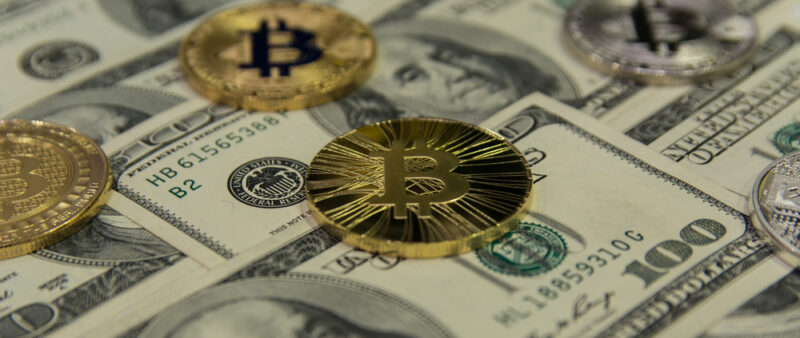Tether is the third-largest crypto by market value. It has some economists, and at least one official at the Fed concerned. The President of the Boston Fed, Eric Rosengren has called tether a potential financial risk. Some investors in Tether are concerned about a loss of confidence, a “black swan” event that will severely impact the market.
The issues associated with Tether are quite significant in the crypto world and hold important implications. Some economists are concerned that the issues could impact markets beyond just digital currencies.
What is Tether?
Chances are good that the majority of astute individuals know a bit about Bitcoin. However, do they also know a thing or two about Tether?
Both Bitcoin and Tether are cryptocurrencies. Tether, by market value, is the third-largest digital coin, however, it is very different than Bitcoin and other digital currencies.
Tether is a stablecoin. A stablecoin is tied to genuine assets such as the United States dollar. As such, Tether, unlike other cryptos, maintains a stable value. Other cryptocurrencies are quite volatile. Bitcoin is a good example. In April, Bitcoin hit an all-time high of nearly $65,000. Today, it is almost half that.
From the outset, Tether was designed to have its value pegged to the U.S. dollar. Other cryptocurrencies very often fluctuate wildly in value while Tethers value usually remains equivalent to $1.00. This is not always the case. Variations or “wobbles” in its value have spooked investors in the past.
As an alternative to the U.S. dollar, Tether is often the currency used by traders to purchase other cryptos. This approach provides the trader with a way to seek safety in a stable asset when the crypto market is very volatile.
Crypto, as yet, is not regulated. Many banks do not like doing business with digital currency exchanges because of the high-risk element. This is exactly where stablecoins come into the picture.
Why is Tether Controversial?
There are some economists, as well as investors, who are concerned that the issuer of Tether does not have sufficient U.S. dollar reserves to justify it being pegged to the dollar.
Several months ago, Tether revealed the reserves for its stablecoin. The company was only able to show that a small fraction of its holdings, less than three percent, were in cash. The vast majority of Tether was in commercial paper which is a form of unsecured, short-term debt.
According to JPMorgan, this puts Tether amongst the top ten biggest holders of commercial paper, worldwide. Tether has been compared to traditional money market funds, sans any regulation.
There is more than $60 billion worth of Tether tokens in circulation, making Tether larger, in terms of deposits, than many banks in the United States.
For some time, there has been concern about whether Tether is being used to bid up Bitcoin prices. One study claims that Tether was used to prop up Bitcoin during price declines.
Early in 2021, the N.Y. Attorney General’s Office entered into a settlement agreement with Tether and affiliated digital currency exchange, Bitfinex. The resulting agreement saw Tether and Bitfinex agree to pay over $18 million in fines. The Attorney General had accused both firms of moving many millions of dollars to cover losses amounting to $850 million.
Although neither company admitted any wrongdoing, they have both been barred from carrying out any business in the state of New York.
Market Contagion Concerns
Crypto analysts at JPMorgan had waned previously that a sudden loss in confidence in Tether would result in a significant liquidity shock to the entire crypto market.
It is not only this concern, there are also concerns that a sudden increase in withdrawals from Tether may lead to market contagion, affecting not only cryptos but other assets as well.
Eric Rosengreen had noted during a speech he gave in June that Tether and other similar stablecoins are a potential risk to wider financial stability. Rosengreen went on to say, “A future crisis might be triggered as stablecoins become increasingly important to the financial market unless they are regulated to ensure stability. Fitch Ratings have warned that a sudden redemption of Tether could very well destabilize short-term credit markets.
WeInvests is a financial portal-based research agency. We do our utmost best to offer reliable and unbiased information about crypto, finance, trading and stocks. However, we do not offer financial advice and users should always carry out their own research.
Read More












